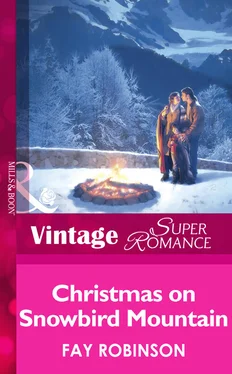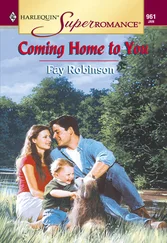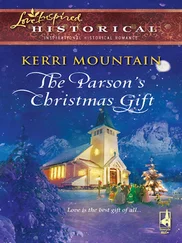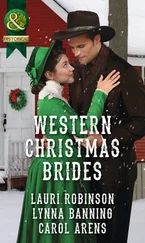“Call me Susannah, please.”
“Susannah.”
She’d never liked her name, but it sounded…appealing coming from his lips. Pleasurable, like the brush of silk against her skin.
“Don’t apologize,” she told him. “I love listening to your language being spoken. I wish I’d bought some books so I could learn a few basic phrases. Tsalagi.” Susannah pronounced it slowly. “I assume that means Cherokee?”
“Yes, the word refers to our language and is one of only a few common to Cherokee here and out west.”
“I don’t understand. You speak a different language from other Cherokees?”
“A different dialect.”
His mother jumped in and explained. “The Eastern Band is a separate entity from the Cherokee Nation in Oklahoma. Most Cherokee here in North Carolina and surrounding states speak Atali and those in Oklahoma Kituhwa. We in Sitting Dog, however, have a mixed dialect that’s not really used on the nearby reservation. I’m afraid a book of phrases would do you little good. You must hear the language spoken, the subtleties of it, to truly understand the meaning of the words.”
“Why is there a difference in dialects if the reservation is so close?”
“We’ve been isolated from each other until recent years because of the mountains. Traditions and lifestyles have evolved differently, as well. Like Qualla Boundary, we have a few mixed-race families because we’ve lived among our white neighbors for many years, but most of our residents are full-blooded. English is our second language rather than our first. We speak mostly Kituhwa, as our ancestors did centuries ago. The dialect is similar to that once spoken by the Cherokee who were relocated to Oklahoma, but with colloquial differences. We borrow from both the Eastern and Western dialects.”
“Well, it’s lovely. Very musical.”
“Yes, a good description. That’s why we so often express ourselves through song.”
“Is Nia fluent in Tsalagi and English?”
“She speaks both and is learning to read and write both. She’s been brought up to learn and respect the language and customs of both races. Her mother was white.”
Susannah had thought so. The child’s skin was light, not dark like her father’s. Her hair was a warm brown rather than black. She could pass for white or Native American.
“Nia mentioned that her mother had passed away. I’m very sorry.”
Whitepath made a strangled sound. He straightened, taking several steps toward her. “She told you that?”
“She said her mother died of cancer.”
He and his mother stared at her strangely again. His grandmother only nodded, as if she wasn’t surprised.
“I’m sorry,” Susannah said. “Was talking to her about it a mistake? If I did something wrong, I apologize.”
“No, no,” Mrs. Whitepath said. “You did nothing wrong. We’re only amazed that Nia confided in anyone. She’s rarely so open with strangers, and she never speaks about her mother. She seems to have taken a great liking to you, though. That’s what Ryan and his grandmother were discussing.”
“I see,” Susannah said, but she suspected there was more to it than that. There was some kind of conflict between the man and the old woman. Sipsey Whitepath seemed pleased, but Ryan looked downright unhappy.
AT HIS MOTHER’S insistence and to Susannah’s delight, Ryan Whitepath agreed to take her on a quick tour of his studio.
“I’ll help Nia with her words while you’re gone,” his mother told him, ushering them out the front door with their coats.
They stood on the steps to appreciate the beauty of the landscape. The old house and its outbuildings sat about halfway up a mountain in a small clearing bordered by hardwoods and evergreens. A panorama of hills and valleys stretched out before them. Dusk had arrived, turning the trees to dark figures and streaking the sky with multiple shades of orange and pink. The scene was breathtaking.
“My God,” Susannah said with a long sigh. “Everything seems too beautiful to be real.”
“The sunrises are just as spectacular. And when a storm rolls through…it’s like nothing else you can imagine.”
“Have you always lived here, Mr. Whitepath? In these mountains, I mean.”
“Call me Ryan. And yes, I’ve lived in the mountains and, for the most part, in this house all my life, except for the years I was away at school. I was born in one of the back rooms. So were my father, uncle, two younger brothers and my sister. My grandmother delivered all of us.”
“Do your siblings live in Sitting Dog?”
“Joseph does. Charlie’s in Winston-Salem and Anita’s a sophomore at the University of North Carolina at Asheville.”
“Is that where you went to school, UNC?”
“I did my undergraduate studies there in painting, but I was lucky enough to get a couple of corporate grants that allowed me to do graduate work in Ravenna, Italy, at The School of Mosaic Restoration.”
“I’m impressed.”
“For my family it was a very big deal, since I was the first Whitepath to ever go to college—actually, the first to even graduate from high school.”
“Really? But your mother seems so well educated.”
“Because she works hard to improve herself. She’s become an expert on the history of our people. She’s also one of the founders of a national project to make sure every child has the opportunity to learn his or her native language.”
“That’s ambitious.”
“But important. Fewer than 150 native languages in the U.S. have survived out of several thousand, and we’ve already lost a major dialect of Cherokee called Elati. She’s determined not to let that happen again.”
“I admire her for preserving your heritage.”
“I do, too. Because of her, I know who my ancestors are. That’s important to me, to my understanding of who I am.”
“What about your father? Is he Cherokee?”
“Yes. His great-great-great-grandparents hid out in these mountains and eluded the soldiers who came in 1838 to relocate them. Their son was born later that year. They named him Numma hi tsune ga, Whitepath, after a chief of the same name from North Georgia who was a half-blood brother to Sequoyah. Chief Whitepath tried to warn against the government’s treachery. But he wasn’t successful at rousing the tribal elders to take a stand and was among those rounded up and marched west. Old and sick, he was one of the four thousand who died.”
“The Trail of Tears. I remember reading about it in my American History classes.”
“My family carries Chief Whitepath’s name in remembrance of what he tried to do. We adopted it around 1900 as a surname.”
“Does it mean anything?”
“To an Indian, everything has a meaning. The white path is the path of happiness in the Green Corn Dance ceremony our ancestors practiced. For a Cherokee of the old time to say he was white meant he was taking the path of happiness, of peace.”
“So where does Ryan come from? That’s obviously not Cherokee.”
“Ryan MacDougal was a childhood friend of my mother’s who died in a fall. She named me for him. These mountains are full of families with Scottish and Irish heritage. You’ll notice the cross-influences in the languages. Our legends are similar, too. Ever heard of the Little People from Irish folktales?”
“Of course. They’re leprechauns. When I was little, I believed they lived in our den.”
“The Cherokee also know of the Little People, the good and bad spirits who inhabit the forest. The Little People are said to take things or move them. Sometimes they’ll leave you a gift, and you’re expected to reciprocate. My father used to swear they were constantly moving his tools.”
“What does your father do?”
Читать дальше












